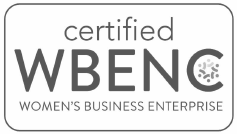You heard that social media marketing drives more than 1/3 of all website traffic and you’re ready to pull the trigger. Not so fast. Effective social media marketing requires a strategy, a sustainability plan and should be integrated with your overall marketing program. So, before you dive into social media, ask yourself these key questions:
- – What are my goals?
- – What platforms are my target audiences using?
- – Where will the content come from?
- – What does my content calendar look like?
- – How will I build audience?
- – Is social media part of my company’s customer service strategy?
- – How will you measure success?
What do you hope to achieve by implementing a social media marketing program? Are you looking to showcase company culture, engage media, enhance organic SEO, drive website traffic? You get the idea.
While having a Facebook ninja on staff can be an asset, you want to make sure you are allocating your resources to the platforms with the potential to generate the most ROI. In most instances, a short (three-to-five question) electronic survey can help to identify the platforms your audiences are not only using but open to receiving information from your company on.
Social media can be a beast and a hungry one at that. No matter how well-prepared you are, there will always be a need for more content. Consider which of your existing assets can be repurposed for social and what you will need to create from scratch.
While social media is the epitome of real-time marketing, having a plan in place is still helpful. Set a content calendar (similar to the editorial calendar you build for your public relations program) at the beginning of each month. While you will need to adjust it to accommodate breaking news and timely opportunities to amplify your reach, it should serve as the baseline to guide your efforts during the month ahead. It also prevents you from unintentionally “going dark” during an unanticipated business rush.
Social media marketing couldn’t be further from “build it and they will come” marketing. Much like other marketing initiatives, you need to drive traffic to your content. Among the tactics you may explore to drive traffic are sponsored content, organic SEO, online advertising and email marketing.
You see it all the time. The cable customer whose service went down asking via Twitter when it will be restored. The buyer whose product purchase wasn’t to their liking and decided to air their grievances via social media. Whether you plan to establish a dedicated team to handle customer service inquiries via social media or not, you need a plan in place to handle them when they arise. Ignoring complaints is not advisable as it reflects poorly on your company and can increase the tension between the customer and your brand.
Let’s revisit the first question – why is your company engaging with social media? Just as it is critical to define your social media marketing goals, it is imperative to know how you will measure success. In many instances, social media will be one of many marketing channels being used to help achieve your goals. You will want to define social media’s specific role in achieving those objectives and how you will evaluate its effectiveness. The good news is that online marketing, including social media marketing, is highly measurable, allowing you to quantify your results.
Social media marketing can be an effective strategy for helping companies increase website traffic, drive content downloads, bolster stakeholder engagement and strengthen brand loyalty. Whether your company commits to an aggressive LinkedIn marketing program or opts for a Facebook program, keep your audience top-of-mind and set benchmarks for evaluating success at the onset. While effective social media marketing programs require companies to publish, engage and monitor on an ongoing basis, it can propel an online marketing program and yield measurable ROI.

